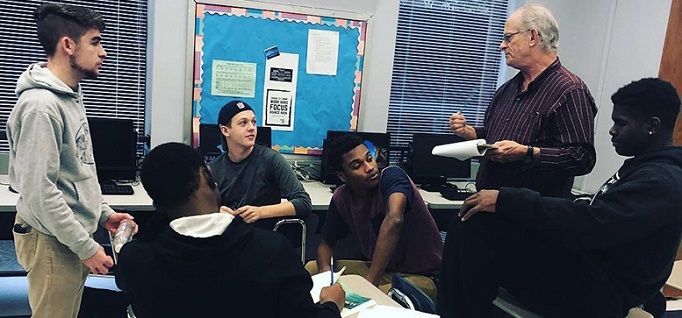What makes AU! work
By Tyra F. Henderson
May 22, 2019
A program in Kentucky provides students with a rigorous academic experience and prepares them for navigating and completing a credential.
In fall 2018, West Kentucky Community and Technical College (WKCTC) and Murray State University (MSU) launched a unique partnership leveraging the two institutions’ skill sets and resources in western Kentucky.
Accelerate U! at MSU (AU!) aims to provide an on-ramp for students to MSU for incoming freshmen who apply to MSU yet fall short of the university’s admissions requirements.
The program is based on MSU’s main campus, providing AU! students a full MSU on-campus experience. The university provides office and classroom space for WKCTC faculty and classes while WKCTC provides a director for the program who works closely with MSU’s Center for Academic Success, Student Affairs, Admissions and Bursar’s Office.
AU!’s primary objective is to provide a rigorous academic experience that prepares students for navigating and successfully completing a credential, primarily a bachelor’s degree at MSU (and an associate degree from WKCTC) and secondarily at any institution that fits the students’ needs if students conclude in the AU! program that MSU or a bachelor’s degree is not the right fit.
Program design
The AU! design is modeled after WKCTC’s Accelerate You! program (AY!) that hastens students past developmental education coursework to college credit-bearing courses with varied supports that promote student success. Using the AY! model and experiences, WKCTC worked with MSU to adapt AY! strategies for the residential college setting.
The program design is developed in consideration of varied research on persistence and credential completion influences, including first-generation college student status, social capital and personal qualities or non-cognitive traits, specifically mindset, grit and self-efficacy. Considering research on persistence and completion risk factors, AU! students need layered supports to address the complexity of persistence threats for the students to make the successful transition to university life and ultimately complete a credential.
Key features of the AU! program design include co-requisite coursework in writing, reading and math, and success coaches who attend classes with students and provide support services outside of the classroom. The program also includes cohort scheduling of classes to create learning communities within the AU! population. AU! faculty and staff also sponsor AU! specific events. (A bowling night, guest speakers, a basketball game night and evening themed-tutoring sessions are examples.)
The 2018-2019 academic year is a pilot of the AU! program, with a beginning enrollment of 40 students all required to live and dine on MSU’s campus. Launching and completing the pilot year required continued coordination between financial aid offices at both institutions, between admissions offices at both institutions, and between academic affairs units from both institutions. Bumps developed along the way, and with communication and collaboration between institutional representatives, strategic processes streamlined the program and the student experience.
Lessons from Year One
Analysis of initial quantitative and qualitative data identifies areas to refine as AU! moves toward Year Two of the pilot, which will double student enrollment and include commuter students. Year One faculty and staff cited financial literacy, transfer of knowledge and greater self-regulation skills as areas of need for AU! students to successfully complete the program and ideally a bachelor’s degree in optimal time.
To do so, faculty and success coaches need to work closely to align the complementary curriculum to show how differing disciplines interconnect. Success coaches must be flexible and available to address varied academic needs, as well as social integration needs, such as homesickness.
Research affirms that faculty who have regular interaction with students have a better understanding of students’ challenges and improve students’ sense of belonging at the college. Full-time faculty who spend much of their time at MSU with the students are important to this endeavor. With full-time faculty who can spend every day or most days at MSU’s campus teaching, holding office hours and collaboratively planning with each other and success coaches, the AU! team can strengthen the academic experience for students.
Year One has also demonstrated that success coaches are an important influence on students’ academic and social experience.
There’s more to the story! Read the full article in CC Daily.



